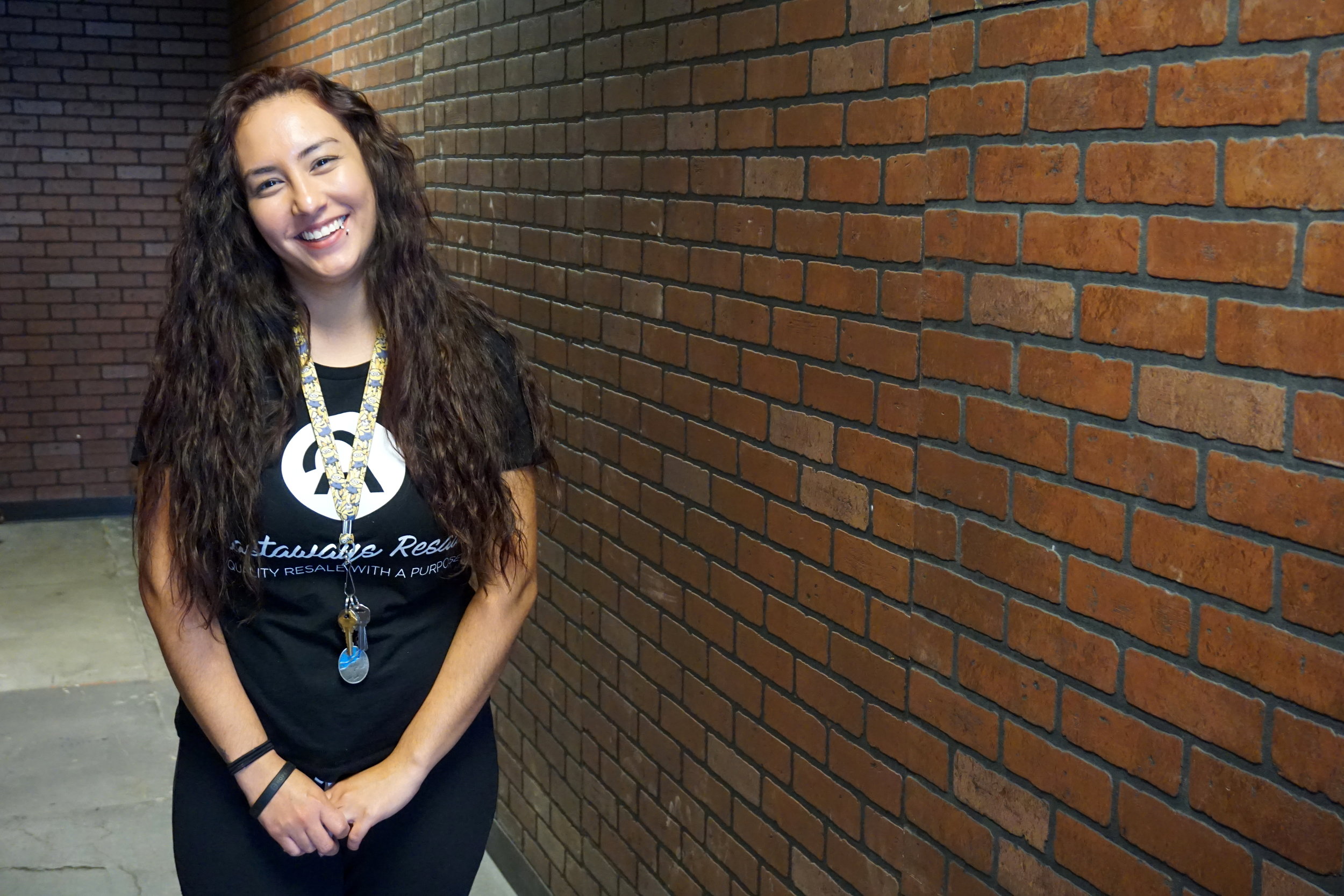After Prison, Now What?
AnaLisa grew up in Las Vegas. A self-described good kid, she made excellent grades in school and really loved algebra and science. “Math is my thing,” she shares with a big smile on her face. “I wanted to teach third grade because I loved my third grade teacher.” When she was in high school, AnaLisa started having a hard time getting along with her stepfather. She ran away, changed schools, and gave up on making friends. AnaLisa started a part-time job at McDonald’s, fell in love with a coworker, and started ditching school.
Soon she found herself pregnant, and her daughter was born in 2009. Around the time of her little girl’s first birthday, Imani was diagnosed with cerebral palsy. “My daughter will be in a wheelchair for the rest of her life,” AnaLisa said. “During this extremely stressful time in my life, I began smoking weed.” She didn’t think it was influencing the relationship with Imani, but that is when her life took a turn she never expected it to take: the marijuana caught up with her.
Early in the morning of January 24, 2014, AnaLisa smoked very early in the morning and then took a nap. Late afternoon, she drove to pick up her roommate—she thought she was fine to drive. Then, something she will regret for the rest of her life happened: she got into a terrible accident and hurt two pedestrians. “One is paralyzed,” she laments. She was arrested and later sentenced to 3 ½ to 10 years of prison.
Hard Lessons Learned Doing Hard Time
But AnaLisa’s story doesn’t end here. Once in prison in the spring of 2014, she went through a very introspective period and realized that smoking marijuana was part of a pattern that she went through when she was facing difficulties. “I was definitely an addict. If I was feeling anything other than happy, I smoked weed.” She sadly says she missed 3 and ½ years of Imani’s growth and development. Realizing that felt like her rock bottom. And then, she started to end the cycle.
While incarcerated, AnaLisa spent time working in the prison’s kitchen before going to a camp facility in Jean, Nevada and becoming certified as a wildland firefighter. “When I wasn’t fighting fires, I was doing landscaping with chainsaws and hedgers.” She thinks back on this time as a period of growth and learning discipline. AnaLisa was introduced to the God Behind Bars program and took classes to learn to take responsibility for her actions. She credits a Skills to Recovery course as helping her see how many were impacted by her choices.
AnaLisa’s sentence was reduced due to the programs she completed and because of the dangers of her firefighter work. In April of 2016, she transferred to the transitional program at Casa Grande, where she learned life skills such as crafting a resume and job interview skills. Soon, she also learned about the mission of Castaways Resale store and started as a volunteer.
Ending the Cycle
Not long after AnaLisa began at Castaways, she was offered a full-time job as a cashier. She left Casa Grande shortly after and got an apartment. AnaLisa was also a customer of the resale store, and she shopped Castaways’ shelves: “I left prison with $4,000 in savings with a wardrobe and shoes. I could afford furnishing my apartment because of our great selection.”
And talk about moving up—AnaLisa has quickly moved into an operations role and currently is floor supervisor. She now oversees all employees, scheduling, payroll, hiring hands-on management with the leadership team, Castaways’ donation outlets, scheduling pick-ups, and deliveries. She says, “My job is my focus. And it has everything to do with where I currently am.” She feels successful and supported, and she now has better communication with family members.
She also counts the Castaways team as family—"Friends I thought I had disappeared; the people at Castaways help me feel like I am not alone. Castaways has everything to do with where I am.” That’s why our mission to reunify families, provide those incarcerated with employment, and reconcile relationships is so important. “I know the struggle; I lived it,” remarks AnaLisa.
“I wish I could help everyone see and understand how important supporting an organization like Castaways is,” AnaLisa concludes. “When you donate, you impact more than you will ever understand. The fact we are giving families like mine a path to a better future is so important to ending the cycle.”
